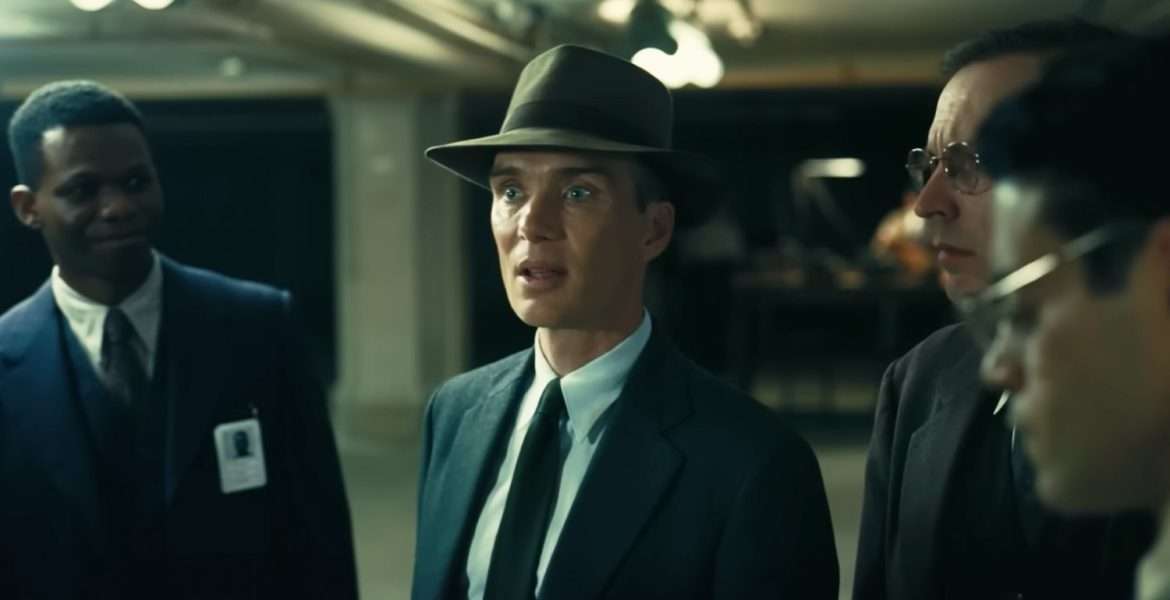If you have a penchant for visually stunning and intellectually stimulating films, then you may have loved Oppenheimer. Helmed by Christopher Nolan, Oppenheimer is a thought-provoking and emotionally charged exploration of the life and legacy of a man who played a pivotal role in shaping the course of modern history. The movie skillfully intertwines history, politics, and science, leaving a lasting impact on its viewers.
Oppenheimer tells the story of J. Robert Oppenheimer. He led the Manhattan Project to create the atomic bomb during WWII. In typical Nolan fashion, the narrative unfolds in a non-linear fashion, challenging the audience to piece together the puzzle of Oppenheimer’s life. The film portrays his internal struggles and political naivete as he gradually understands the moral implications of such power. As the bomb is successfully tested, Oppenheimer faces the devastating reality of its potential destruction.
After the end of WWII, he advocates for control of atomic energy. Moreover, his opposition to the hydrogen bomb leads to a contentious hearing. Haunted by his choices, the film leaves audiences pondering the complex relationship between science, ethics, and humanity’s fate in the wake of nuclear innovation. The movie’s thought-provoking conversations and deep philosophical undertones encourage us to mull over the moral dilemmas that come with scientific advancements.
Here is a list of 10 outstanding films that will resonate with you if you enjoyed Oppenheimer. While these films may not rival the grandeur of Oppenheimer, they are bound to evoke contemplation and provide you with ample food for thought.
1. The Beginning or the End (1947)
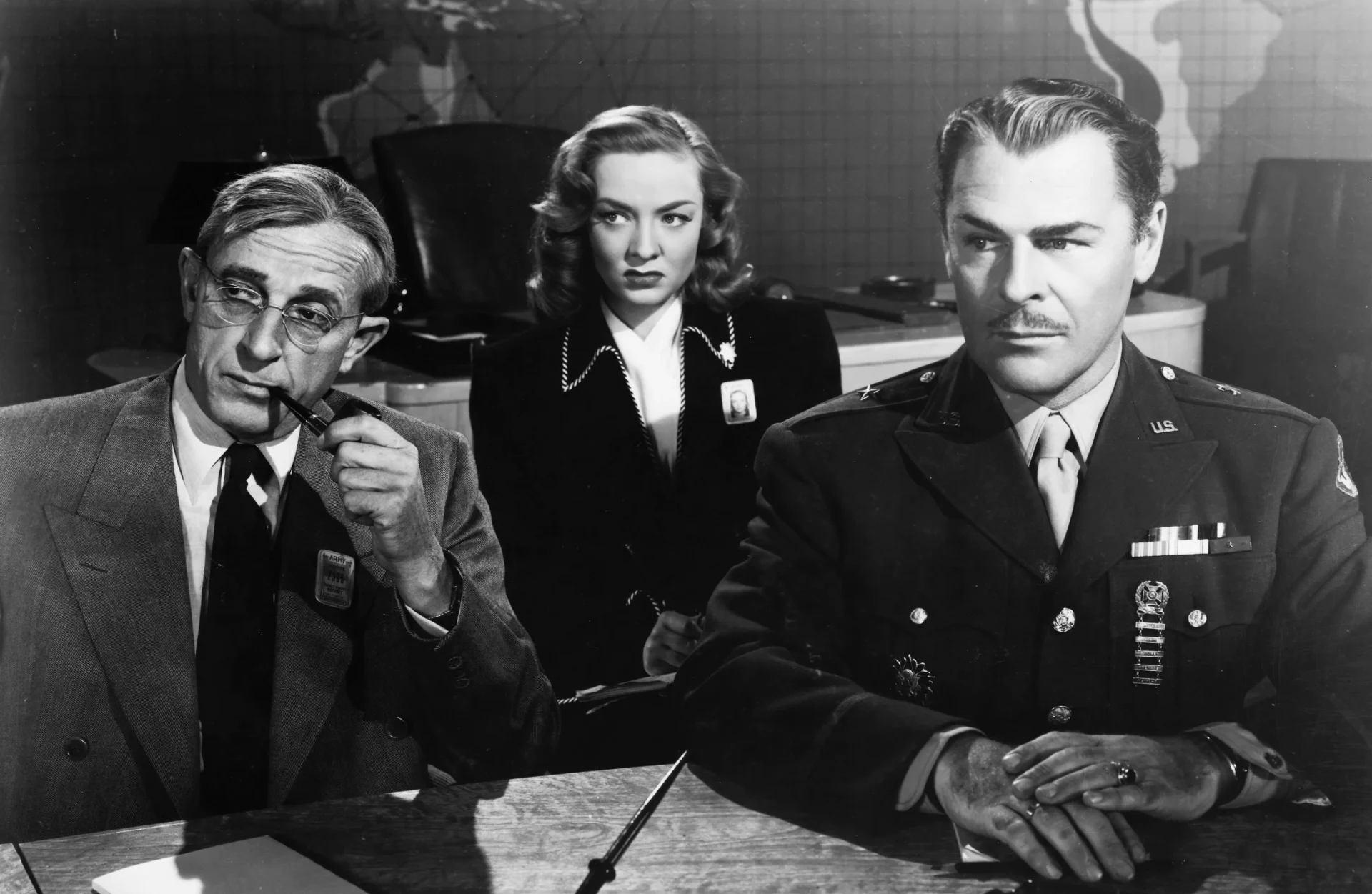
The Beginning or the End, released in 1947, is a gripping historical drama directed by Norman Taurog. The film presents a semi-fictionalized account of the Manhattan Project, a top-secret government program undertaken by the United States to build the atomic bomb. It revolves around the brilliant minds behind this groundbreaking project, with Brian Donlevy portraying J. Robert Oppenheimer and Hume Cronyn as General Leslie Groves. As we follow their journey, we witness the challenges they face, not just from a scientific perspective but also from an ethical one. The film beautifully captures the internal struggles of these scientists as they grapple with the enormity of their creation, knowing it has the potential to bring catastrophic destruction.
The title, “The Beginning or the End,” alludes to the question of whether the atomic bomb marked the beginning of a new era of peace through deterrence or the beginning of a dangerous and potentially destructive arms race between nations. The film attempts to shed light on this complex debate and raises questions about the responsibilities of scientists, politicians, and governments in handling such powerful and devastating technology.
While The Beginning or the End has been praised for its attempt to tackle a significant historical event, it has also faced criticism for taking some liberties with the historical accuracy of particular circumstances and characters. Nevertheless, it remains an essential film in the context of post-World War II cinema, exploring the complex moral issues concerning the utilization of nuclear weapons and their impact on humanity.
2. Day One (1989)
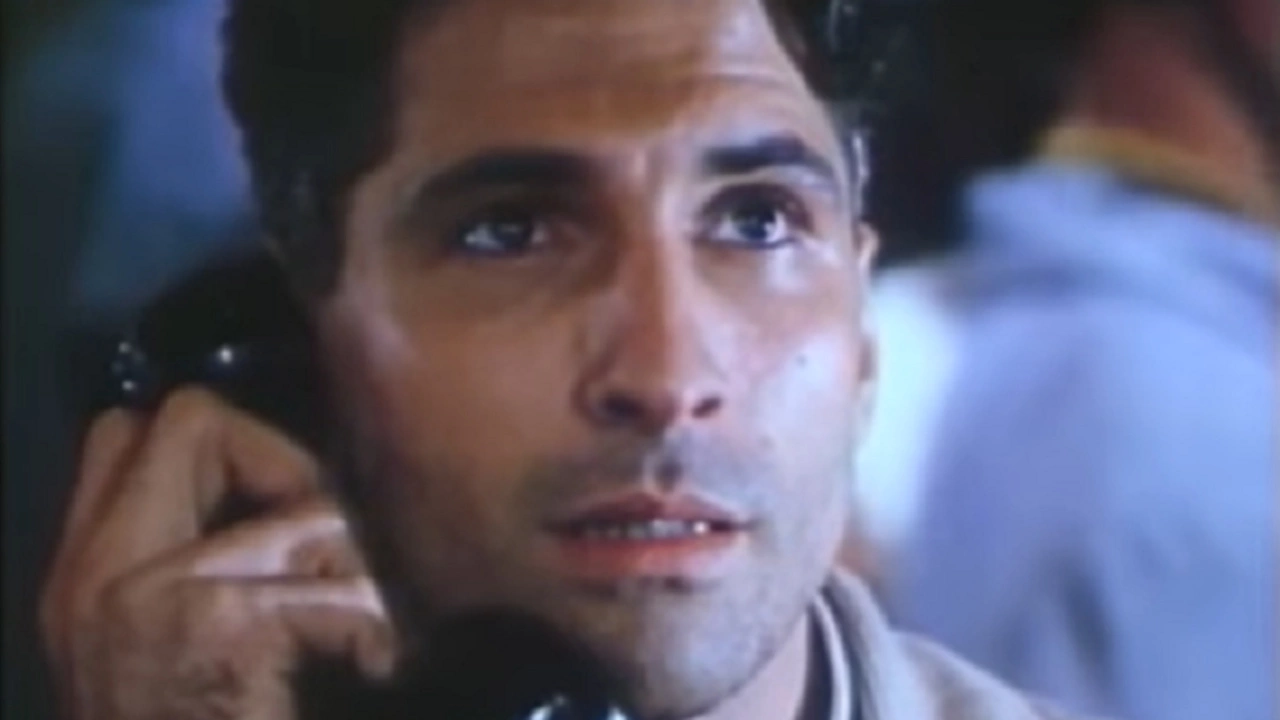
Day One is a 1989 made-for-television movie directed by Joseph Sargent. It depicts the development of the first atomic bomb during World War II as part of the Manhattan Project. The title “Day One” refers to the pivotal moment when the first successful test of the atomic bomb, code-named “Trinity,” took place on July 16, 1945. This test marked the beginning of the nuclear age. It led to the eventual use of atomic bombs on the cities of Hiroshima and Nagasaki in Japan, supposedly hastening the end of World War II.
The film focuses on the challenges faced by physicist J. Robert Oppenheimer, played by Brian Dennehy, and other scientists as they race against time to complete the project. It explores the moral dilemmas about the consequences of their work and the intense pressure from the government to succeed in creating a powerful weapon. It highlights the intricate ethical issues surrounding the use of nuclear weapons and the human cost of their creation. While Day One may have taken some creative freedom to enhance the storytelling, it remains a poignant historical drama that offers insight into one of history’s most significant scientific endeavors and its lasting impact on our world.
3. Fat Man and Little Boy (1989)
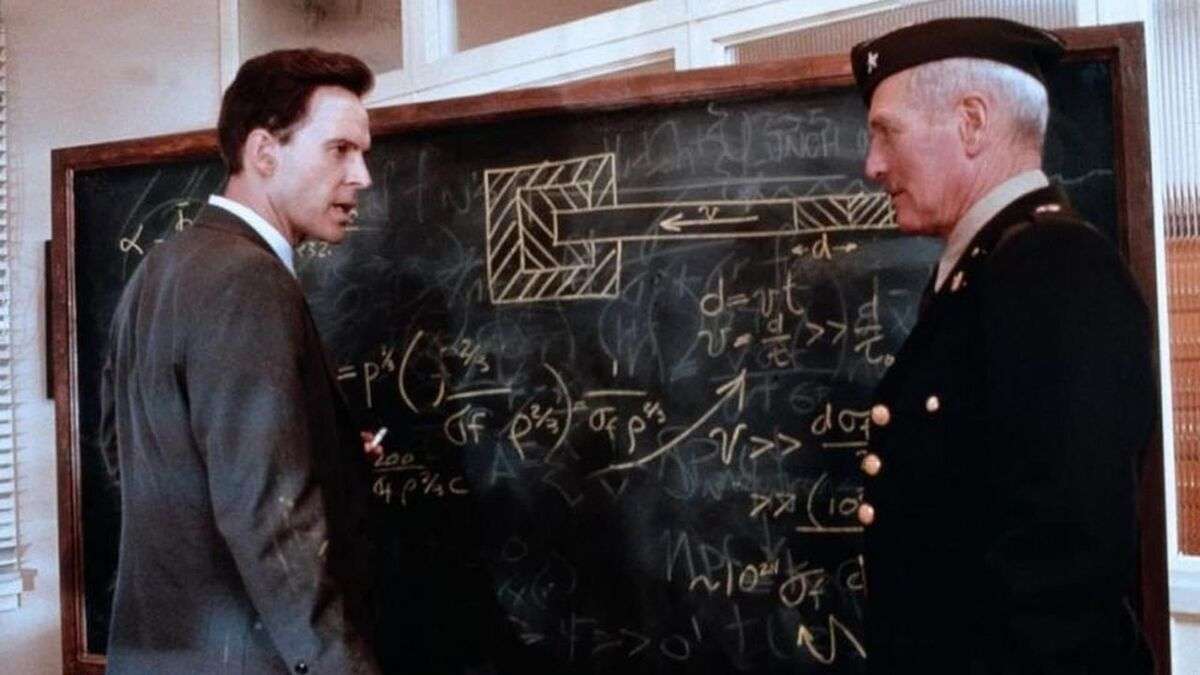
Fat Man and Little Boy is a historical drama film directed by Roland Joffé. Released in 1989, It explores the fascinating and morally complex events surrounding the development of the atomic bomb during World War II. The film’s title refers to the code names of the two nuclear bombs dropped on Hiroshima and Nagasaki.
Set in the 1940s, the plot follows the brilliant physicist J. Robert Oppenheimer (Dwight Schultz) as he leads the top-secret Manhattan Project. Tasked with creating the world’s first atomic bomb, Oppenheimer is torn between his desire to contribute to the war effort and the potentially devastating consequences of his creation. The film explores the friendship and conflicts between Oppenheimer and General Leslie Groves (Paul Newman). It raises thought-provoking questions about the responsibility of scientists and the moral implications of wielding such immense power.
4. The Day After Trinity (1981)
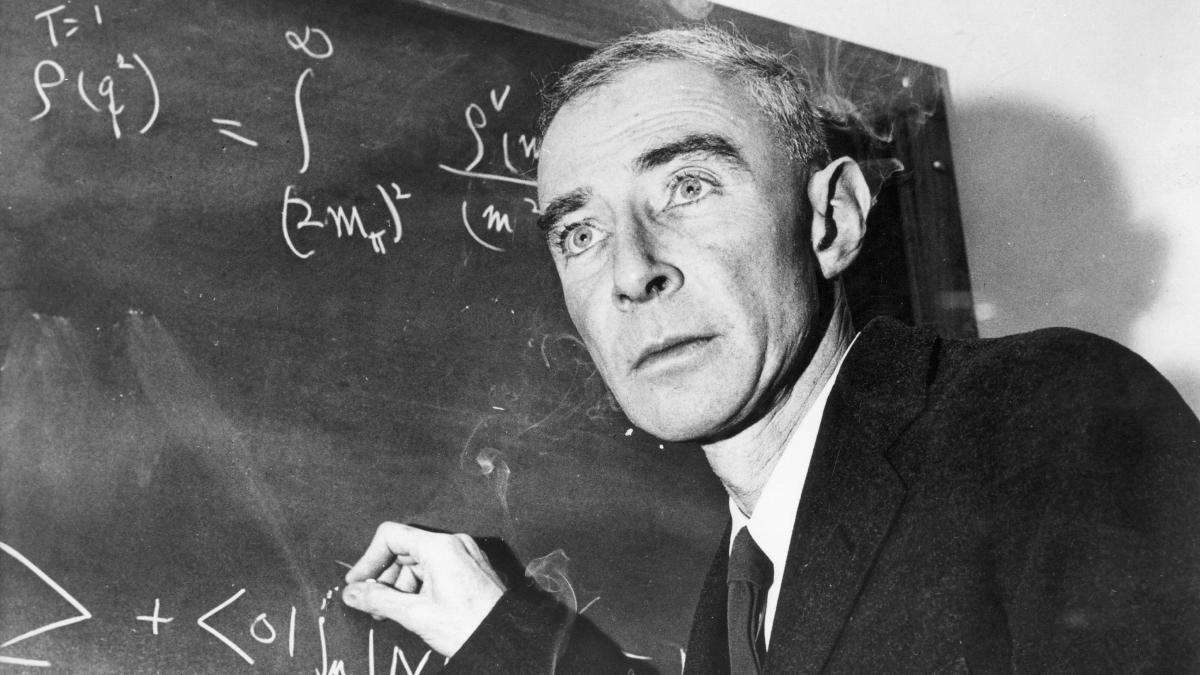
The Day After Trinity is a poignant and reflective documentary film released in 1981, directed by Jon H. Else. The film centers on J. Robert Oppenheimer, often called the “father of the atomic bomb.” Through a combination of archival footage, interviews with scientists, and personal accounts, the film traces Oppenheimer’s journey from leading the Manhattan Project, which resulted in the creation of the first nuclear weapons, to grappling with his work’s moral and ethical consequences.
At its core, the film delves into the duality of scientific discovery and its potential for both progress and destruction. It explores the complexities of the human conscience as Oppenheimer and his team of scientists are faced with the devastating power they have unleashed upon the world. “The Day After Trinity” presents a somber reflection on the nuclear age, highlighting the moral dilemmas surrounding the development and use of such potent weapons. Through its gripping narrative and thought-provoking interviews, the film raises questions about the responsibility of scientists and governments in wielding such destructive capabilities.
5. Trinity and Beyond (1995)
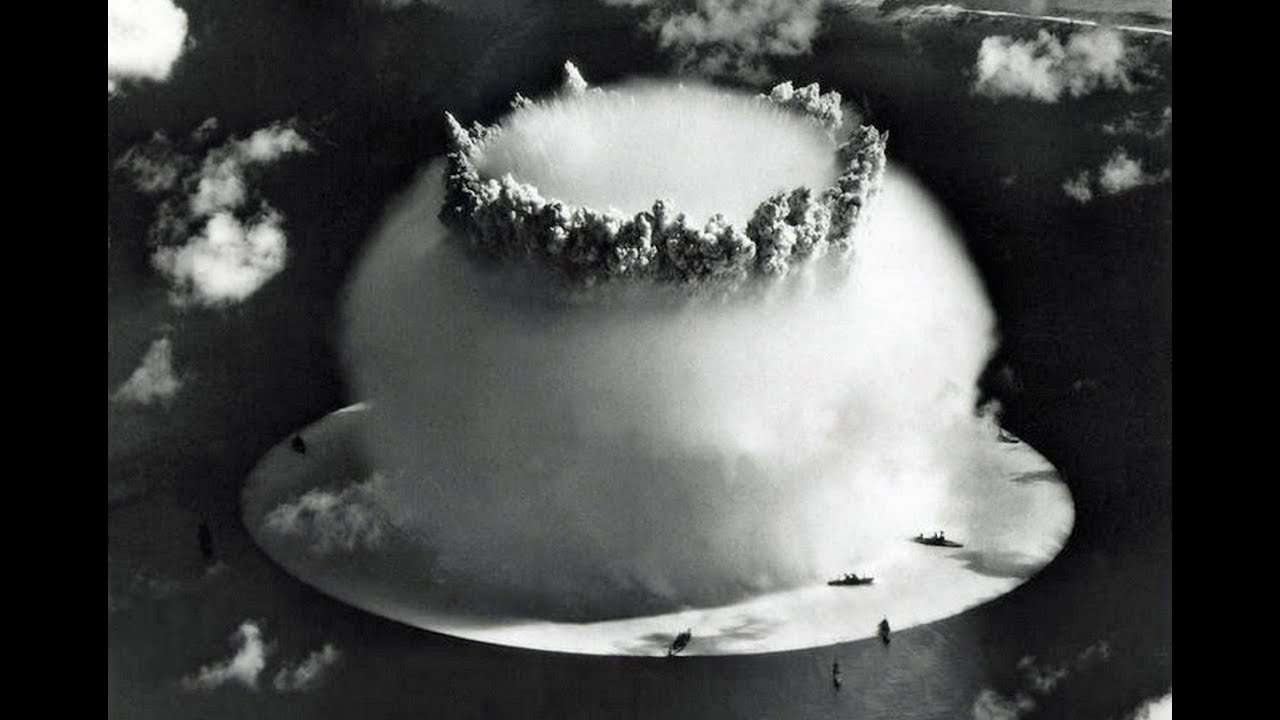
Trinity and Beyond: The Atomic Bomb Movie is a documentary film released in 1995. It was directed by Peter Kuran and focuses on the history of nuclear weapons testing and their development from the early days of the Manhattan Project to more contemporary times. The film features declassified footage of atomic tests conducted by various countries, including the United States, the Soviet Union, and other nuclear powers.
The documentary’s plot is presented chronologically, starting with the first atomic bomb test, code-named “Trinity,” conducted by the U.S. in 1945. It then delves into the subsequent tests, including those carried out by other countries, showcasing the alarming escalation of nuclear capabilities and the devastating consequences of these tests on human lives and the environment. “Trinity and Beyond” also examines the political and strategic motivations behind atomic testing and the subsequent arms race during the Cold War era.
Trinity and Beyond serve as a powerful reminder of the catastrophic potential of nuclear weapons and the importance of disarmament efforts. Through its historical perspective and stunning visuals, the film aims to educate and raise awareness about the profound implications of nuclear warfare, encouraging viewers to contemplate the need for global cooperation in preventing the use and spread of these weapons of mass destruction.
Read More: Why Oppenheimer is Christopher Nolan’s Best-Directed Film Yet?
6. Hiroshima (1995)
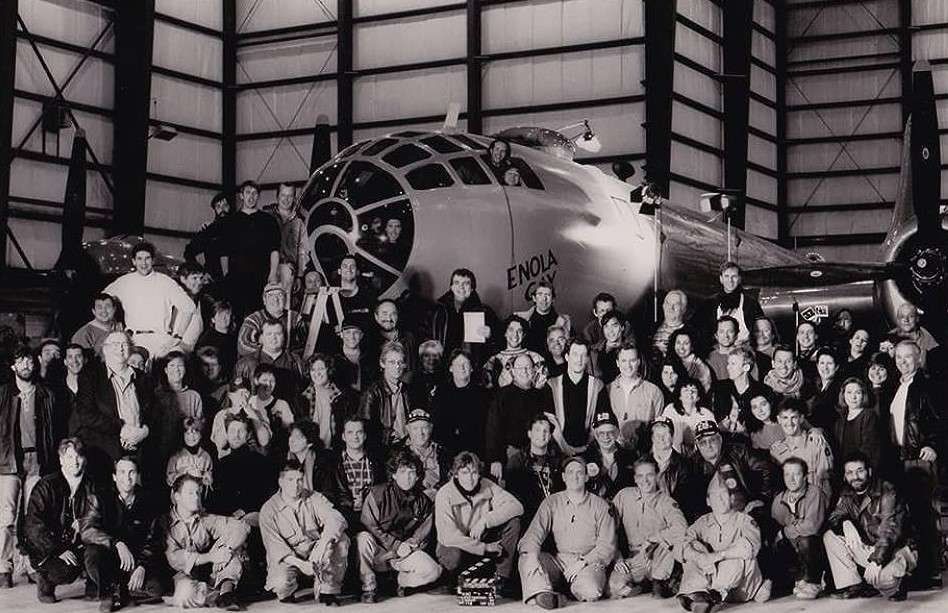
“Hiroshima” is a 1995 war drama film co-directed by Koreyoshi Kurahara and Roger Spottiswoode. The movie explores the decision-making involved in the United States dropping of the atomic bombs on the Japanese cities of Hiroshima and Nagasaki during the final stages of World War II. By focusing on the politicians and their perspectives rather than solely on the scientists, the film presents a fresh and nuanced exploration of the complex factors influencing the use of nuclear weapons.
The narrative portrays the ethical conundrum faced by President Truman, who must decide whether to use the newly developed nuclear weapons on Japan. The film effectively juxtaposes the tense political deliberations in the U.S. alongside the internal struggles within Japan, where civilian Prime Minister Kantarō Suzuki’s rational voice counters the fervent defense Minister of War General Anami Korechika advocated.
With a blend of dramatization, newsreel footage, and interviews with individuals who experienced the events, “Hiroshima” offers a well-rounded and ambivalent perspective on this historic chapter. Overall, the film provides a compelling account of the political dimensions of the atomic bombings, leaving viewers with haunting reflections on the consequences of these momentous decisions.
7. Infinity (1996)
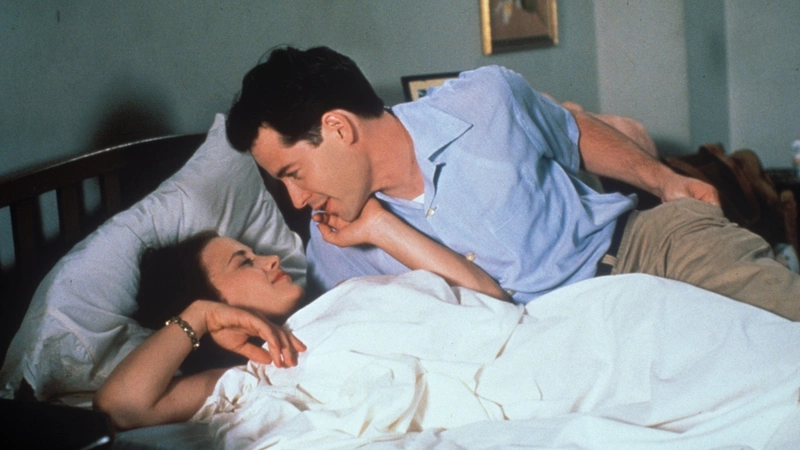
Infinity is a 1996 biographical drama film directed by Matthew Broderick, who also stars as the lead character, physicist Richard Feynman. Set during the early 1940s, the film revolves around the renowned Nobel Prize-winning physicist’s life and his World War II experiences. The central theme of Infinity is the exploration of Feynman’s insatiable curiosity and relentless pursuit of knowledge.
The plot delves into his unique problem-solving approach and unconventional thinking, which sets him apart from his fellow scientists. Through the film, viewers get a glimpse of Feynman’s humorous and adventurous personality, as well as his struggles to navigate personal challenges and the ethical dilemmas of working on a secret project that could have disastrous consequences.
The film skillfully explores the essence of Feynman’s life, balancing moments of scientific brilliance with heartwarming interactions with his beloved wife, Arline (played by Patricia Arquette), who tragically succumbs to tuberculosis. As Feynman copes with personal loss, the film highlights how his dedication to science becomes both an escape and a source of solace. Infinity uniquely portrays a remarkable scientist, blending intellectual depth with emotional resonance. It serves as a poignant reminder of the human spirit’s unyielding pursuit of understanding and the profound impact of one individual’s contributions to science and society.
8. Copenhagen (2002)
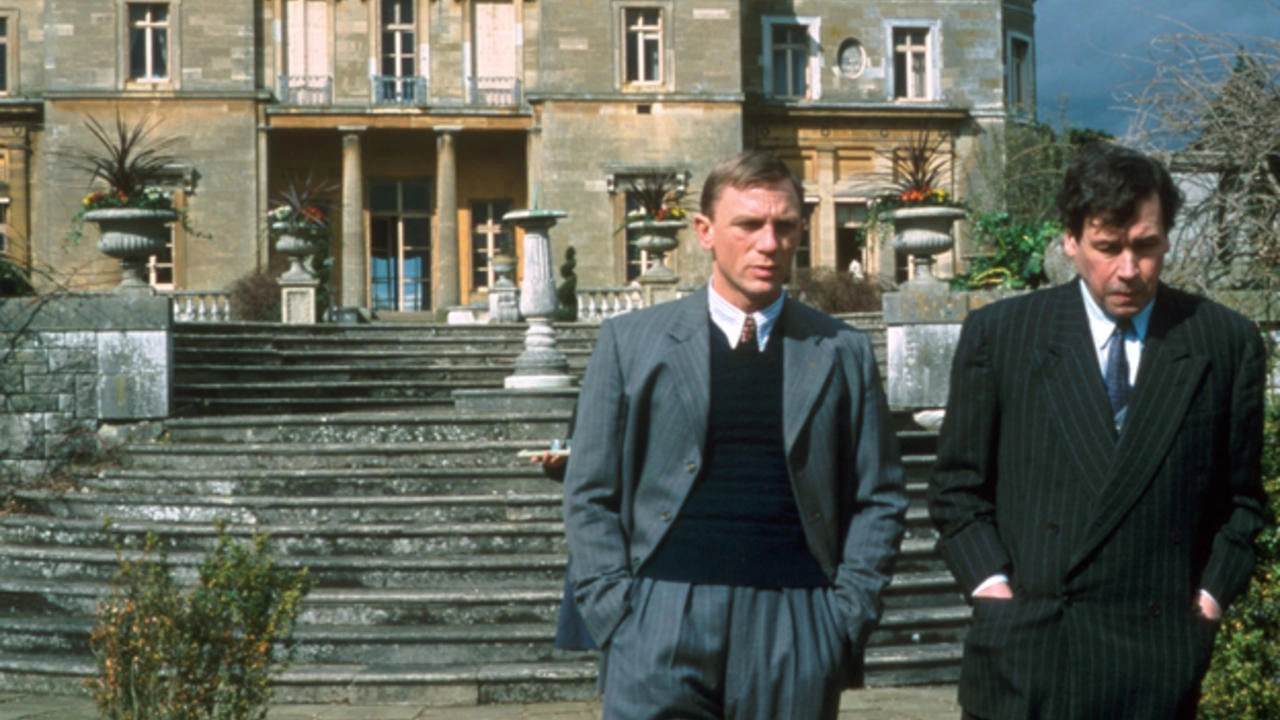
Copenhagen is a television film released in 2002. It is based on the Tony Award-winning play of the same name, written by Michael Frayn. The film was directed by Howard Davies and stars Daniel Craig as physicist Werner Heisenberg and Stephen Rea as physicist Niels Bohr.
The story is set in 1941 and explores the real-life meeting between Bohr and Heisenberg. Both scientists had worked closely in the past, but they found themselves on opposite sides of the war – Bohr was Danish and lived in the occupied territory, while Heisenberg was German and was working under the Nazi regime.
The central point of contention is Heisenberg’s motivations for visiting Bohr, as it remains unclear whether Heisenberg was attempting to gather information for the German atomic bomb project or genuinely seeking guidance and collaboration. Copenhagen delves into the complexities of scientific discovery, moral responsibility, and personal relationships during a tumultuous period in history. The film is a thought-provoking exploration of the dynamics between two brilliant scientists and their differing perspectives on the role of science in wartime and its impact on humanity.
9. The Imitation Game (2014)
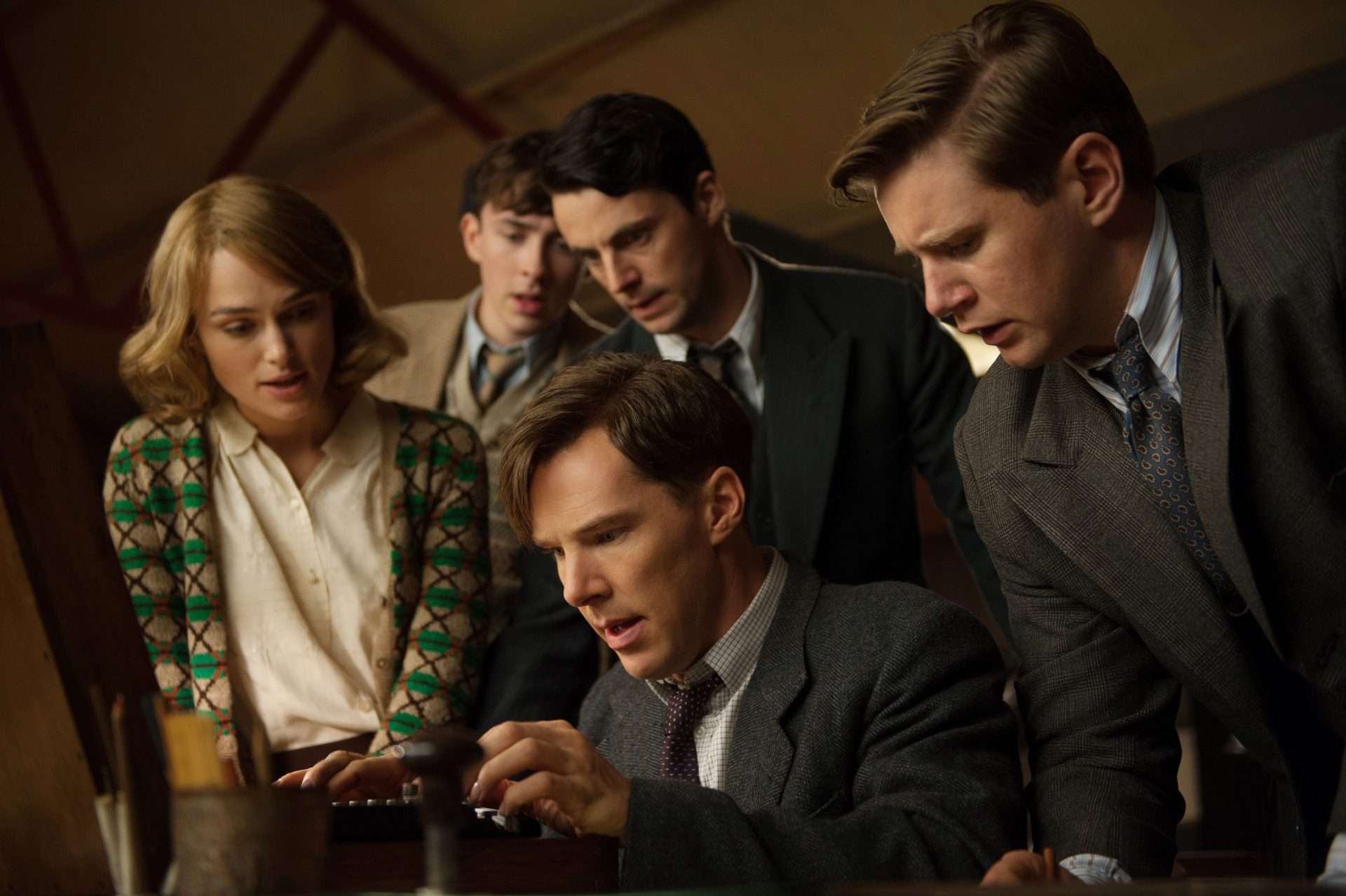
The Imitation Game is a compelling 2014 biographical drama directed by Morten Tyldum that delves into the life and work of British mathematician and cryptanalyst Alan Turing. Set during World War II, the film showcases Turing’s pivotal role in breaking the German Enigma code, a complex encryption used to transmit secret military messages.
The plot alternates between three significant periods in Turing’s life: his time at Bletchley Park leading a team of codebreakers to decipher Enigma, his younger years as a bullied prodigy, and his post-war arrest for indecency. The film masterfully weaves these timelines together to paint a vivid picture of Turing’s life and the impact of his groundbreaking work on the outcome of the war. Benedict Cumberbatch delivers a remarkable performance as Turing, portraying his brilliant mind and his struggles with social isolation and discrimination due to his homosexuality, which was criminalized during that time.
The Imitation Game sheds light on an extraordinary historical achievement and raises poignant questions about the price of genius and the importance of embracing diversity. It highlights Turing’s pivotal role in shortening the war and saving countless lives, all while dealing with the heartbreaking injustices he faced during his lifetime. Overall, the film is a moving tribute to an unsung hero and a powerful reminder of the significance of individuality and compassion in an increasingly complex world.
10. Radioactive (2019)
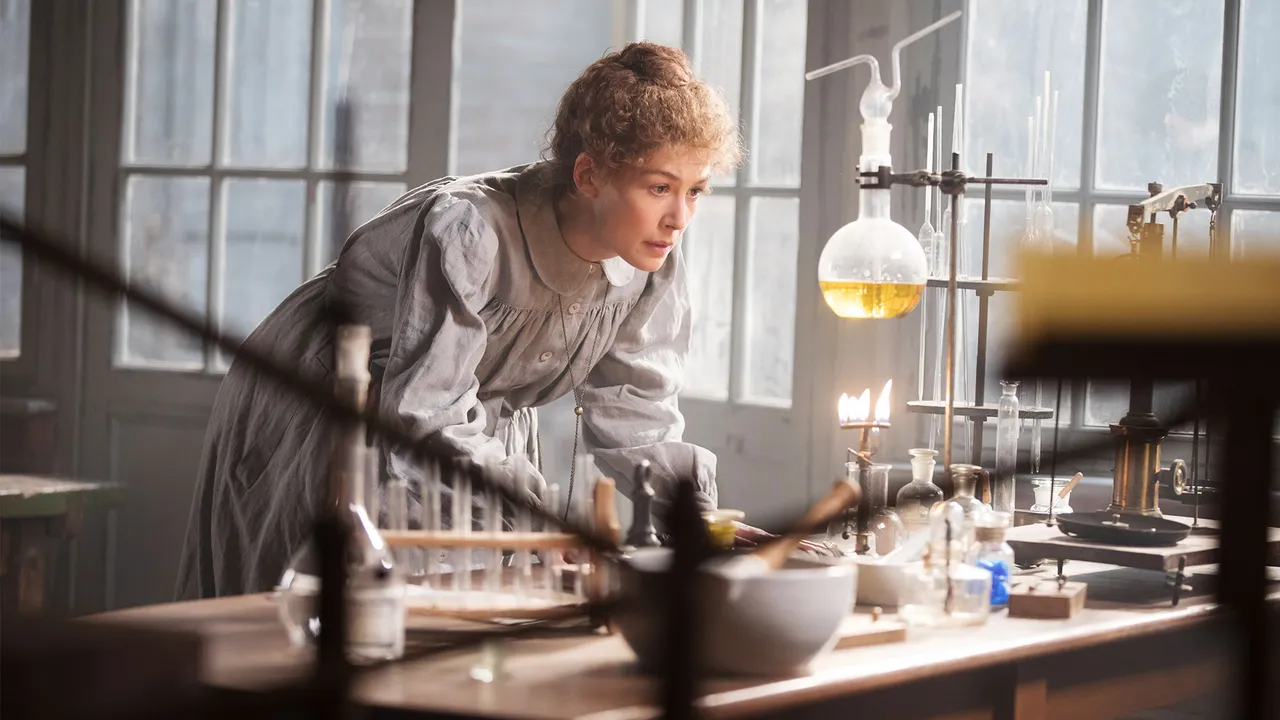
Radioactive is a biographical drama film released in 2019. It was directed by Marjane Satrapi and is based on the graphic novel “Radioactive: Marie & Pierre Curie: A Tale of Love and Fallout” by Lauren Redniss. The film tells the life story of Marie Curie, a pioneering scientist known for her groundbreaking research on radioactivity and her discovery of the elements Polonium and Radium.
In the movie, Marie Curie is portrayed by Rosamund Pike, who delivers a compelling performance depicting Curie’s struggles as a female scientist in a male-dominated field and her relentless dedication to her work. The film explores her scientific achievements and the challenges she faced in her career and delves into her personal life, including her love and partnership with her husband, Pierre Curie, played by Sam Riley.
The central theme of Radioactive revolves around the immense power and potential of scientific discoveries and the ethical implications they carry. It highlights the transformative impact of Curie’s work on medicine and technology while exploring darker aspects, such as the development of nuclear weapons and the devastating effects of radiation. Radioactive is a touching tribute to one of the most influential scientists in history and her profound contributions to humanity, presenting a compelling narrative that intertwines science, love, and legacy.

